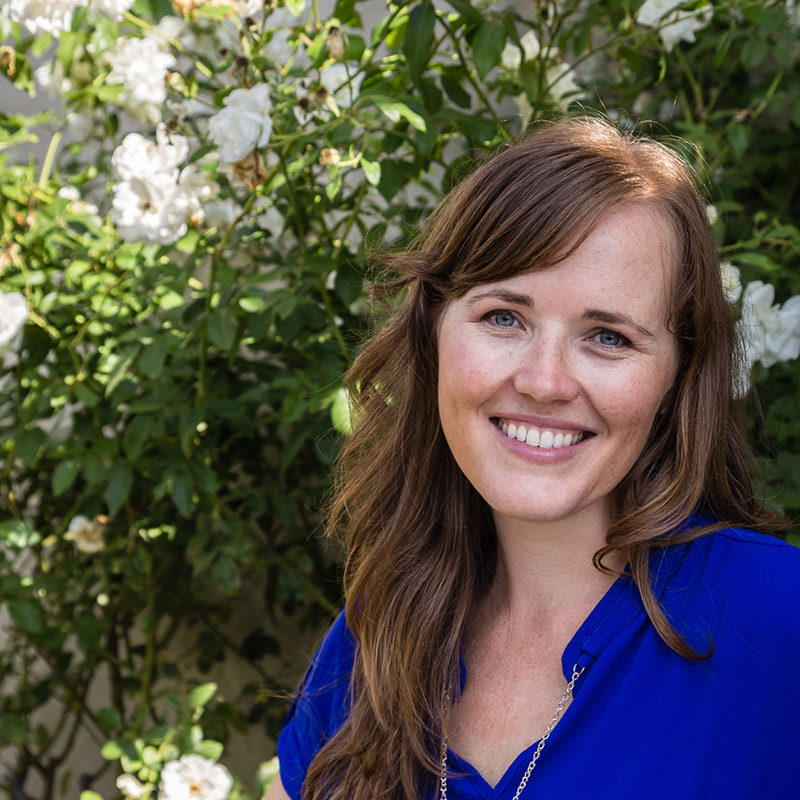Potty training for autistic children: 8 common questions
Updated: August 29, 2023 · 8 Minute Read

Reviewed by:
Michelle Swaney, CEO of The Potty School
Highlights
- Choose a potty training method that works with your existing parenting style and is consistent with the values and habits you want your child to develop.
- Don’t compare your timeline to that of other children; your child can meet their potty-training milestone, but it will be dependent upon who they are and what they need.
- Consistency is key. You and your child will both struggle if you don’t choose a method that fits them, and stick to it.
- Start prepping for a week before potting training actually starts. You can prep meals ahead of time and keep the bathroom doors open so they see what the toilet is being used for regularly.
- Don’t allow communication challenges to discourage you! You and your child can figure out ways to communicate and potty train in a way unique to them. Sometimes parents/caregivers can miss key “signals” because they simply aren’t looking for them.
Potty training is one the most discussed topics within the autism parenting community, so we’ve chatted with potty training expert, mom of 3, and CEO of The Potty School, Michelle D. Swaney. Michelle’s got great insight for potty training special needs and autistic children. Read on for the full interview!
What are your favorite actionable potty training tips that could be implemented ASAP?
Normalize using the toilet/bathroom. An open door policy for your child to be able to go into the bathroom at-will is helpful. Obviously, for certain children more attention is required so you don’t end up with toys down the toilet, or toilet paper clogging the sink, but the idea is not to make it “off limits” all the time. They need to see what a toilet is being used for, regularly.
Set a start date (or re-start date) and come to agreement upon it with all co-parents and caregivers involved.
Prep meals ahead of time. This makes life SO much easier!
Start “potty training” a week before you start. Make sure their diet has appropriate fiber, hydration and a reasonably dependable rhythm of bowel movements before you try to start potty training a child on the spectrum without a diaper. This one week of prep is so very essential to so many special needs families and is almost always overlooked. They spend time trying to create a rhythmic bowel movement schedule while they are potty training and it’s just a lot for a parent to coordinate and handle at one time.
What would you say is the biggest challenge to overcome when potty training kids on the spectrum?
I think the biggest challenge is whatever is currently your child’s biggest challenge, meaning if they’re dealing with something, it isn’t going to magically disappear just because there are more hurdles added with potty training. That could be a shortened attention span, difficulty with receptive language, or physically violent behavior when transitioning to an unwanted task. I think a lot of parents think that when they potty train their child on the spectrum that they will deal with typical potty training issues, and that’s just usually not the case, it’s compounded by whomever your child currently is and the hardest tasks for them. As said, those things don’t just disappear, so the more you can break up “simple” tasks into parts of tasks, the better.
A lot of special needs parents seem to forget they have a child on the spectrum when they seek potty training advice. They seek mainstream sources of information that are typically geared towards a verbal, running, 2-or-3-year-old who can sit still for 10-minutes at a time with a focused activity, and tell a caregiver when they want to do something or are done with something. That just usually isn’t the scenario with a child on the spectrum. I encourage families to incorporate who their child is into the creation of a pottying process, instead of jamming their child into a system that wasn’t really created for them in the first place.
What advice do you have for parents whose child has mastered one bathroom activity, but is having difficulty with the other?
Children peeing in the toilet, but not pooing, or vice versa is very common in any child who is potty training. The catch with children on the spectrum is that the transition from one position to another can be a major milestone to achieve. You need to be willing to entertain the idea that in order to get your child’s pee and poo in the toilet it just may not look the same as you expected. It may take consecutive pees in a row, or being willing to adjust your idea of what “sitting on the toilet” looks like.
What are your best tips for potty training nonverbal children?
Most of my clients who have self-labeled (and/or professionally diagnosed) non-verbal children have children who aren’t using words, but can make sounds, or are able/learning to use an AAC device, or tablet with pictures. There is so much communication that can still happen with the tools of sounds and devices! Don’t give up! Many-a-child has been potty trained using sound associations or signs, or signals or devices. This is the one developmental area that I’d really encourage parents to not give up hope in and to exhaust all their options, to be diligent in what their child can do and express. Can they ring a bell? Can they do sign language? Do they recognize basic sounds? There are non-verbal methods that are easily received by caregivers as communication, if trained to receive it as such.
What are your best tips for potty training older children?
Most of our home clients with autistic children are ages 5-10 and all have made progress either to pees in the toilet, poos in the toilet, or to both. They have either already tried for years, or have been told to wait until they’re ready for years on end, that “you’ll see the signs.” For many families with children on the spectrum, that day doesn’t come. That said, I do think there are signs, but often they are semi-hidden behind what parents notice as the bigger things going on. Those bigger things are often what needed to be addressed first, so there’s no shame in saying you’ve never tried to potty train your 8-year-old.
There is a lot of grace, at least from me, about why other families made the choices they made, especially in the world of special needs families. Generally, it’s because they had to. Maybe you have been noticing a large hand gesture while we would notice at the same time they are semi-starting to squat. Maybe you hear a loud noise that you’ve heard 27 times that day and tune out, but we see a grabbing hand-gesture to go along with it. It’s all about what you’re looking for, and what takes priority in your mind. Setting a date to start really helps parents to mentally shift gears to change their focus so they can see past the everyday things and pay more attention to the potty-related things.
Do you have any advice for parents who have maybe given up or fear their kids will be in diapers/pull-ups for life?
Your fear is valid. If I’m honest, I think that if your child is on the spectrum and you wait long enough to potty train, at some point someone will tell you that your child will be diaper dependent for life. It is often said on a whim by someone who hardly knows your child, as if “of course, it’s obvious.” But, it can be shocking to parents who never really even considered it practically, it had just been a far-off fear. Often, those situations have never had potty training even incorporated into their child’s IEP, Individualized Education Program (that’s what it’s called in California).
We have one final filter question we ask all of our special needs families before confirming travel and dates. That question is, “Do you (the parent or guardian) think your child can make progress with potty training?” Generally speaking, they have reached out because they do think their child can make progress. We trust parents and guardians' intuition greatly. Be careful not to let your fear of your child never getting out of diapers become your reality, just because you’re too scared to start, to start again, or to ask for the help your family needs.
Do you have any tips for parents who have tried *everything* and still haven't been successful with potty training?
About half of all our in-take questionnaires include some form of “I’ve tried everything!” for both neuro-typical and neuro-divergent children. It’s an interesting thought that so many have come to the same conclusion that they have done “everything”. Many families have tried a variety of tricks, but haven’t actually stuck to a singular tried and true method for a solid amount of time. Or, they have picked a method that doesn’t match up with their parenting style and was doomed to fail from the beginning. Trying “everything” often means reading popular blog posts, a couple of books and whatever was trending on social media at the time, that possibly is trending because it’s novel, not because it works for more than a handful of children.
My tip would be to make sure that your method matches how you parent. If you have never put your child in time-out before, why would you start while potty training? If you tend to walk with your child to a new location, why would pointing a finger to the toilet and sending them on their own work? Just be mindful to tweak whatever method you use to how you actually want to develop your child’s habits. For example, my husband and I didn’t want our family’s kids associating sweets with behavior so we never involved candy or food rewards in potty training. But, we did want to reward them with positive feedback, so they always have seen giant smiles, and sometimes a high five or hug, especially at the beginning of pottying. (But, if clients want to use rewards, and it fits with their parenting style, professionally I’ll happily use them).
Many parents of autistic children co-parent, or have family helping them with childcare, which can make potty training inconsistent. Do you have any ideas on how someone could overcome inconsistency?
Overcoming inconsistency really needs to be worked on as the problem it is – poor communication with the co-parents. That will always trickle down and negatively affect the child. That is generally not originally a potty training issue, but it becomes one because people aren’t willing to agree to be consistent for the sake of the child. Having a written plan before you start can be hugely helpful to avoid inconsistency, and gives a way for each parent to write their differences down. The more specific the better. We often are potty training plan mediators when two parts of a family have different opinions and they want an expert opinion to help them decide what might be best in their situation. That can be a happy medium that both parties will agree to: to talk through a plan with a knowledgeable, experienced, “stranger” third party.
-end of interview-
A huge thank you to Michelle for these incredible answers! You can follow The Potty School on Instagram and Facebook to keep up with their work.
Get our best articles delivered to your inbox each month.
We respect your privacy.













